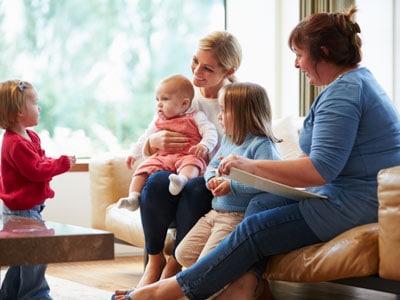Supporto all'autismo nella prima infanzia
From early intervention or support, to support groups and family advocacy, a range of support services and resources are available for young autistic children and their families.
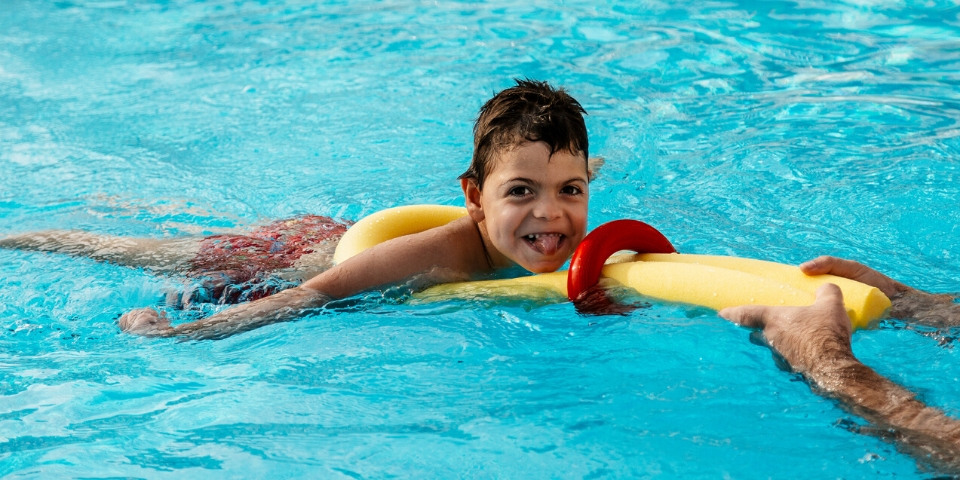
Early support services
If your toddler or pre-schooler has been diagnosed as autistic or is displaying signs or characteristics of Autism Spectrum Disorder (ASD), early intervention or support can be incredibly beneficial for their development.
Early support means undertaking therapies, practices or programs, and accessing services to work on your child’s developmental needs as early as possible. The sooner your child accesses early support, the sooner functional skills across a range of areas can be developed.
Supports can include therapy, intervention, programs, strategies, coordination or sessions that can support your child’s development. They could take the form of specialised education, therapy, counselling, service planning and coordination, as well as assistance and support to access services such as kindergarten and childcare.
Services, or service providers, refer to the places and organisations that offer these supports. The aim of these services is to provide parents and families with the knowledge, skills and supporting professionals they need to optimise their child’s development, and ability to participate in social and community participation.
All supports and services for children on the autism spectrum should be centred around the child, their family, and should be well-structured and accessed through reputable and professional service providers.
State and territory governments and a range of service providers offer early childhood intervention services and early childhood education and care services, although the nature of these services and how they are implemented may vary between states and territories.
To find early support therapies and services in your area, contact your state or territory autism support service provider.
For more information about funding for early support services, visit Financial support for autistic people, or the Australian Government Department of Social Services website.
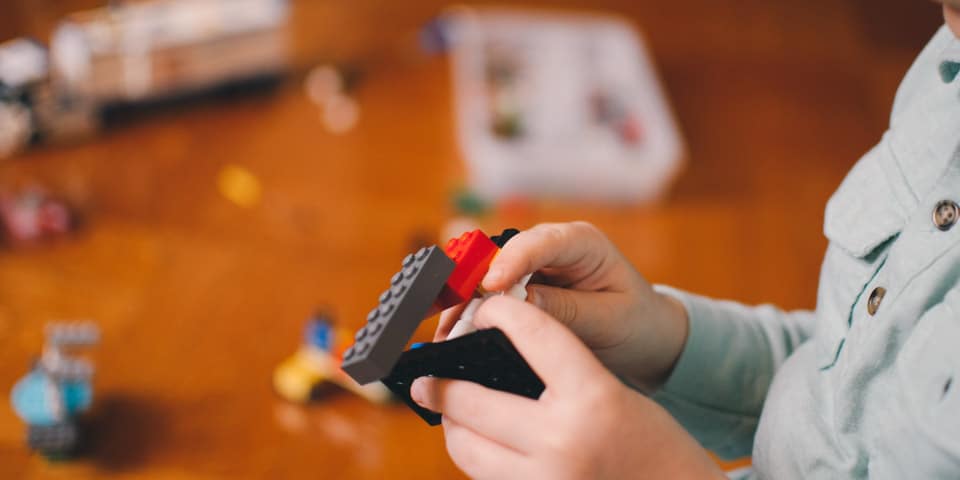
General supports and services
Early Childhood Early Intervention Approach
The Early Childhood Early Intervention (ECEI) approach is available to all children aged under 7 with a developmental delay or disability in Australia and is provided through the NDIS. ECEI services are available in some states and territories and can be contacted if concerns about your child’s development have been identified.
Early Childhood Partner can provide information about supports and services available in your local community and to connect you and your child with the most appropriate supports, such as the community health centre, educational setting and playgroup. ECEI can provide some short-term early where it has been identified as the most appropriate support.
The type of support that might be included are outlined on the NDIS website:
- Information and linkages to help you access supports and services available in your local community.
- Short-term early intervention supports if this is the best way to support your child.
- Where your child may require longer term early childhood intervention supports, the Early Childhood Partner can help you request access to the NDIS.
Early Childhood Partner work with families to develop a plan that supports participants goals, and will link you with your chosen providers.
The Early Childhood Partner monitor and review your child’s progress against the goals you have set. Your Early Childhood Partner and service providers will support your family to improve your child’s independence and participation in everyday activities.
For more information visit the NDIS website.
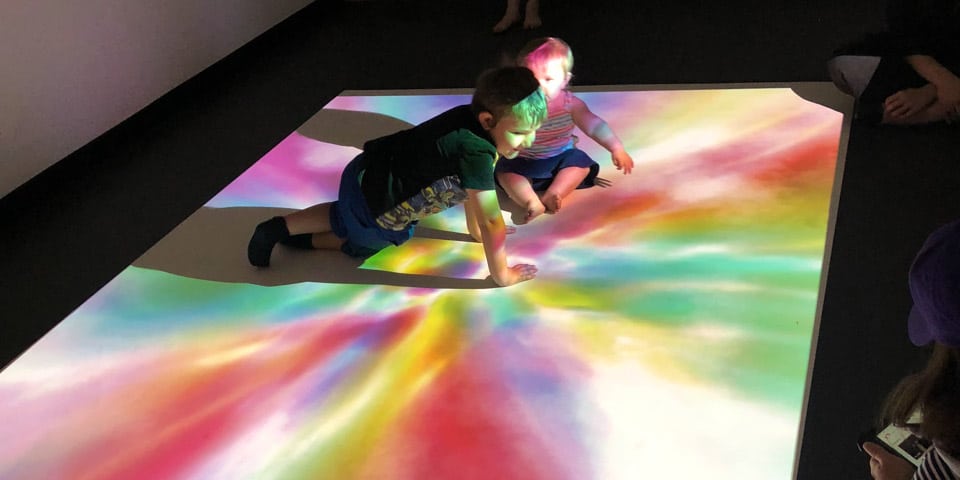
Support groups
Many parents of autistic children find it useful to join a support group. Support groups can be a helpful way to share experiences, make friends, and discuss the stresses and successes of day-to-day life with a child.
You can find out more about support groups in your area by contacting your state autism support service provider or looking into a national support program such as MyTime.
MyTime groups provide support for parents, grandparents and carers of children under the age of 16 with a disability or chronic illness (not specific to autism). The groups provide parents and carers with an opportunity to socialise and meet other families, and to share ideas and thoughts on their journey so far. Children are also welcome to attend.
There are a vast number of online support groups available for parents and carers of autistic children too, they include:
Carers Gateway is a national service provided by the Australian Federal Government, that provides help, support, respite and tips to people who care for someone with a disability, disorder, injury, or the elderly. It provides phone counselling services, helps you to connect with other carers and have access to training and courses to help you develop the key skills you may need to manage the care of a dependant or loved one.
The YMCA is a community-based charity that creates opportunities for people and communities to connect with a better life. They provide a range of programs and services that aim to strengthen people, families and communities. Examples of programs include swimming lessons for young children. In some cases, NDIS funds can be used, under the category ‘Increased Social and Community Participation’ to access YMCA programs.
Siblings Australia is committed to improving the support available for siblings of children and adults who have a chronic condition, including a disorder, disability, chronic illness or mental health concerns. It can be a very helpful carer support service for siblings and families.
Facebook support groups for carers
- Autism Support Group, Australia
- Autism Parents Australia
- Resources for Special Needs
- ASD Matters
- Friends Care Online
- NDIS Grassroots Discussion
- Autism Support Group for Aussie Mums
Or you can call Autism Connect, 8am-7pm Monday to Friday on 1300 308 699.
For a list of autism support service providers in your state or territory visit our Resources page.
Playgroups
Play is an integral part of a child’s development in their early years, and autistic children are no different.
Playgroups offer babies, toddlers and young children on the spectrum with a wide variety of early learning experiences to help develop social skills and emotional confidence, imagination, creativity and physical activity.
Playconnect Playgroups
Playconnect Playgroups are autism-specific playgroups for autistic children up to six years of age.
Playconnect is based in various locations around Australia, and generally run for two hours per week. It provides parents and carers the opportunity to meet other families with autistic children in their local area.
Sessions are run by a playgroup facilitator who can connect families with information on early support services in their local area. Playconnect is funded so there is no cost for families to attend.
Supported Playgroups
Supported Playgroups provide a chance for parents and children who might find it challenging to access playgroups to develop social and family support networks, and participate in play experiences and activities.
Supported Playgroups are based in locations around Australia, run once a week for two hours, and are facilitated by a coordinator.
Supported Playgroups support families from one or more of the following groups within the community:
- Culturally and linguistically diverse families
- Indigenous families
- Families with mental health or disability (either the parent or child)
- Teenage and young parent families
- Families who are socially isolated or disadvantaged
Call Playgroup on 1800 171 882 to find your nearest Playgroup or contact your state playgroup association directly.

Childcare and kindergarten
The Federal government, along with state and territory governments, provide support to childcare centres, family day care providers, and kindergartens to ensure autistic children have access to early childhood education.
Inclusion Support Program
The Inclusion Support Program helps early childhood and child care services build their capacity and capability to include autistic children and/or additional needs in mainstream services, providing them with an opportunity to learn and develop alongside their peers.
The program also aims to provide parents and carers of children on the autism spectrum and/or additional needs with access to appropriate early childhood and child care services, to help them participate in the workforce.
You can find out more about the Inclusion Support Program on the Australian Government’s Department of Education website or ask your local child care service for more information.
Autism Specific Early Learning and Care Centres
In addition to the Helping Children with Autism (HCWA) package, the Government has established six Autism Specific Early Learning and Care Centres (ASELCCs) across the country – in Sydney, Brisbane, Adelaide, North West Tasmania, Melbourne and Perth.
The ASELCCs provide early learning programs and specific support for autistic children up to six years of age in a long day care setting. They also provide parents and carers with support in the care of their children, and give them the opportunity to participate more fully in the community.
Through their affiliations with universities or hospitals, the centres have a research and workforce-training component, which helps to achieve a better understanding of autism and increase workforce capacity. For more information, contact your state or territory Autism Specific Early Learning and Care Centre, at the following locations:
- South Western Sydney: KU Marcia Burgess Autism Specific Early Learning and Care Centre
- Brisbane: Queensland Autism Specific Early Learning and Care Centre – AEIOU for Children with Autism
- Adelaide: Anglicare SA, Daphne Street Child Care and Specialist Early Learning Centre
- North West Tasmania: North West Tasmania Autism Specific Early Learning and Care Centre
- Melbourne: La Trobe University Community Childrens Centre
- Perth: Mercy Child Day Care Bedford
Child Care or Kindergarten Support
Each state and territory has various support programs to assist autistic children at mainstream kindergarten. Some states have access to support educators who will work alongside teachers and families to support the needs of the child in the general kindergarten setting.
Autism SA Foundations Skills Groups
The Autism SA Foundation Skills Group offers children aged 3-5 years therapeutic services and supports in a holistic, group-based therapy program.
The aim of the Foundation Skills Group is to support young children and their families to reach their goals through an intensive early support program. Our team of Speech Pathologists, Occupational Therapists and Educators value your children’s strengths and interests and will work collaboratively with families, educators and other service providers to form a team around the child. This is achieved by using best practice strategies and approaches for meaningful outcomes in all areas.
The Foundation Skills operate in Adelaide, South Australia. For more information, visit Autism SA.
For further information, contact your state or territory autism association.
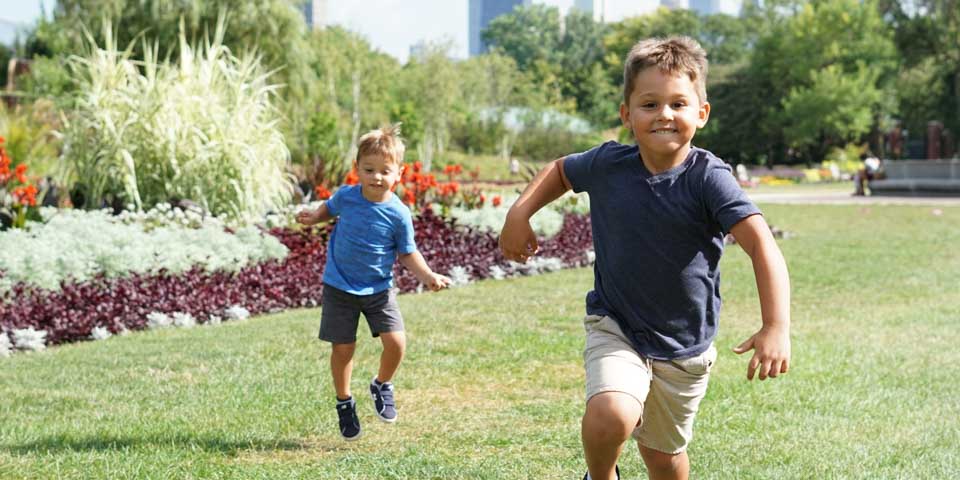
Family advocacy
Advocating involves working with organisations and service providers to ensure access to supports and services so you or your child can fully participant in the community.
For example, you might have an advocate to assist you in getting support for your child in kindergarten, or assistance when attending planning meetings with government organisations, such as the NDIS.
If you need support getting started, or for attending planning meetings an advocacy service may be useful.
Autism Aspergers Advocacy Australia is a national organisation directly representing autistic people and their families. The organisation regularly develops and promotes national policy, and reports on outcomes.
There are also state-based family advocacy groups – many of which are delivered by Legal Aid – to support families to promote and defend the rights and interests of autistic people or other developmental disabilities.
- NSW – Family Advocacy
- ACT – Family Advocacy and Support Services
- VIC – Independent Family Advocacy and Support
- QLD – The Family Advocacy and Support Service
- NT – Various
- WA – Family Advocacy Support Services
- SA – Disability Advocacy and Complaints Service of South Australia Inc
- TAS – Family Advocacy and Support Service
For more information about being an advocate or finding an advocate to help you, go to our Advocacy page.

Recreation
There is a range of recreational activities for young autistic children – some may be for all children in the community, while some may be autism, or disability-specific.
Choosing a recreation activity for your child will depend on their interests, your family dynamics, your financial situation, transport, individual needs, and availability of groups in your area.
To find out about recreation activities available to all children in your area, an internet search will provide a few ideas. You may also be able to find some activities by asking other families in your neighbourhood, talking to people at your child’s school or child care, or by contacting your local council.
Occupational therapists, allied health professionals, or state or territory autism associations will be able to provide you with information about any recreational activities in your area that are autism-specific for a list of recommendations.
Learning to swim
Living in Australia, learning to swim is an important part of childhood. For some autistic children, learning to swim can present many challenges.
Some autistic children may be able to participate in mainstream community or school swimming lessons, while others may require a modified program. Most states and territories offer modified programs for autistic children and other needs.
For general swimming programs contact your school, council or local swimming pool. For modified swimming lessons for autistic children contact your local council or autism association to find out what is available in your area.
What is aquatic therapy?
Aquatic therapy can support children who are just starting to learn about water – getting used to the sensation, wanting to learn about being safe in the water, or for kids who absolutely love the water. It can be used to facilitate regulation and engagement in a way that land-based therapy doesn’t, supporting children to work towards their OT goals and have fun doing it!
Goals and skills worked on include, but aren’t limited to:
- Gross motor skills
- Fine motor skills
- Social skills
- Community participation
- Water safety
- Sensory and emotional regulation
- Following instructions, and
- Transitioning skills.
Autism SA offers aqua therapy out of Adelaide, South Australia. Contact Autism SA for more information.
Health
Children can be diagnosed with autism between 18-20 months of age. Younger siblings of children already diagnosed are sometimes assessed prior to their first birthday.
If you have any concerns about your child’s development, we encourage you to investigate further by consulting your GP and/or paediatrician, and seeking an assessment.
In order to diagnose autism in early childhood, your child would need to be assessed, either by a trained professional, or by a multi-disciplinary team, which may include a paediatrician, psychiatrist, clinical psychologist or speech pathologist.
Along the way, it is also likely that your child will have appointments with a range of allied health professionals, including speech pathologists, occupational therapists, audiologists, optometrists, orthoptists and physiotherapists.
Your child may also be diagnosed with a co-occurring condition, such as an intellectual disability or epilepsy. For more information about common co-conditions and where to seek support for an additional diagnosis, go to our Co-conditions section.
When it comes to diagnosis, there are both government funded and private services available. Wait times for government-funded services can be quite lengthy, whereas private services tend to have a shorter waiting time, but have a fee associated with the assessment.
There may be Medicare rebates available to assist with the cost of seeking a diagnosis. Find out more about diagnosis in the early years here, and financial support here.
Daily living skills
You may find that your child needs extra support relating to learning daily routines, living activities and skills, such as toilet training, eating, sleeping, and communication.
The best place to start in better understanding your child’s needs is by seeing your GP and getting a referral to an allied health care professional, such as an Occupational Therapist (OT). OTs can assess your child’s needs and recommend a range of activities and exercises that will help them to develop their skills.
If their needs are communication based a GP may refer you to a speech pathologist, or if your child has challenges relating to eating a dietitian may be referred.
For more information about early support that will help your child with developing their key skills, visit our Strategies and Practices page.
Emotions
A child’s ability to understand and express emotions starts developing from birth.
For some autistic individuals, understanding and interpreting their body’s internal sensations (interoceptive awareness) can be challenging.
Paired with differences in the way that they use and understand non-verbal communication methods (e.g. facial expression and body language) and experience different emotions, it can be additionally challenging for individuals to recognise and express emotions and understand the emotions of others.
The right support and accommodations can help the development of emotional regulation skills. Working with the team to develop an understanding of a child’s needs and how best to respond can further enhance the development of emotional regulation.
There are many ways to support a child’s understanding of their emotions and the emotions of others, including:
- Using language modelling to connect observations or body sensations to an emotion. For example, when you’re reading a book, you could point to the character and say to your child: “Look – Tom is crying. He might be feeling sad”
- Acknowledging your child’s emotions in the moment. For example, saying “I can hear your loud laugh! You might be feeling happy.”
- Using emotion cards or family photos with photos of faces and the context surrounding the expression
- Using strategies such as Social Stories™ or writing stories together to explore different emotions and situations.
Short term accommodation or care
Caring for an autistic child can sometimes be emotionally and physically draining. To ensure you are able to support your child, it can sometimes be a good idea to take a break. You might like to consider short term care options.
This can include asking family or friends to care for your autistic child, or your other children, for a short period while you do an activity like go to the movies, go for a walk, or it may be overnight so you can have a short get away.
Alternatively, you may be able to access paid support, or short term accommodation, where someone looks after your child, to give you some time to rest, recuperate and just be you, as well as giving your child the opportunity for different experiences. Whether the care is a few hours or a few weeks, sometimes it can support yours, and your child and families emotional and physical wellbeing. It can be accessed occasionally or on a more regular basis, and can occur either in your own home or somewhere else.
For more information about short term accommodation or care visit our support and services in the community page.



